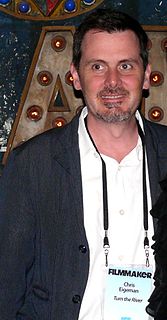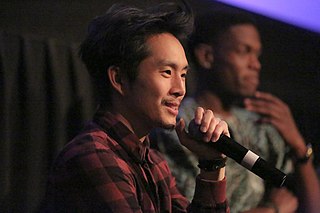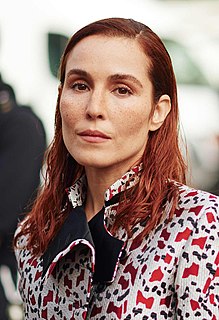A Quote by Ashton Kutcher
I think directing yourself is a monumental task. Just to self edit as an actor, you work for some directors who don't give you a lot of feedback so you have to do that. That's a difficult thing to do as an actor.
Related Quotes
The hardest thing for a film actor, especially if you are in a lot of the film, is sustaining energy for the entire length of a production. It's quite tough. With acting, it's not the same as directing. Directors work the exact same hours; directing is incredibly exhausting. The only difference is that directors aren't required to have bursts of energy and focus. They're probably focused the entire day. Actors have this thing of "stop/start." That can be quite draining, actually.
In a lot of movies, honestly, the directors don't talk to you that much. Maybe they say, "Faster, slower," whatever. Sometimes they give you little adjustments, because sometimes you want to start out neutral, but a lot of times you wind up directing yourself anyway, just doing what you think is the right thing to do.
I actually cut my sentences a lot. I'm very aware of the actor, giving them too many words - just a mouthful of words - it's difficult sometimes for an actor. So I'm kind of aware of breaking sometimes the line, the sentence with a comma where maybe there wouldn't be a comma there. Just to give a breathing space for the actor, just to be aware of that.
The truth is, an actor's performance is the result of work by a lot more people than just the actor. When you see that character portrayed up on screen, there is the work certainly of the actor, but there's the work of the editor, there's the work of what the camera was doing. What the music was doing, all of the above.
The weird thing is that, with actors, filmmakers and directors, it doesn't really matter if it's Robert Downey Jr., who's one of the biggest stars in the world, when you start to work, he's a hardworking actor. At the end of the day, it doesn't matter who's a big star and who's an unknown actor from wherever. It's all about the work you do.
The only disadvantage to directing if you've been an actor is how self-conscious you are. When I'm directing, I'm always so aware when I'm speaking to an actor of how easily I could throw them off by saying something careless or not being clear or concise. So it does make you watch your words in a way that sometimes is unhelpful.
Sometimes perception is almost more important than the skill level of an actor. And if you give too much away, you have nothing to take for yourself and put onscreen. If people feel like they know you too well, they won't be able to indentify with the character you're trying to portray. Or they'll feel that you're just playing yourself, and then you just become a personality actor. And that's the death of any actor.




































